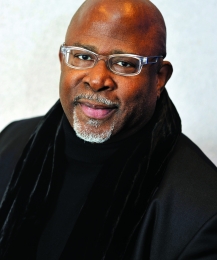From Law Student to Change Agent: Advocating for Racial Justice
Alumni share their experiences working on racial equity and the paths they took to social justice work.
Lawyers can fight for social justice but won’t achieve change without partnering with communities affected by discrimination, Columbia Law School alumni who work for racial equity said in an online panel discussion. (Watch the full event above.)
“From Law Student to Change Agent: Law as a Tool Against Racial Injustice,” an online discussion for Columbia Law students held on August 11, was moderated by Mary Otoo ’22, social consciousness chair of the Black Law Students Association, and Kendall Thomas, Nash Professor of Law.
The idea that “‘lawyers lead the way and impacted people follow’ [is] a relic of the past,” said Andrea McChristian ’13, law and policy director at New Jersey Institute for Social Justice, which focuses on access to jobs, housing, and voting and criminal justice reform.
“We need to listen to the people most impacted” by systemic racism, and the specific problems it causes, in order to “amplify their voices and let them lead rather than just have a seat at the table,” she added.
In her role as senior deputy director of litigation at the NAACP Legal Defense and Education Fund, Jin Hee Lee ’00 is focused on court action—but “I am not going to kid myself that we can achieve social change through litigation alone,” Lee said. “The past summer of protest has really illustrated this: It’s really grassroots movements that effect substantive change and transformational change. And it’s important for lawyers to realize that.”
Christopher Wilds ’15, an associate at Patterson Belknap Webb & Tyler LLP, serves on an independent monitoring team that oversees compliance of the Newark (N.J.) Police Division with a federal consent decree aimed at ending unconstitutional practices. He has worked with the police to get them to engage with community groups so that they can “actually listen and incorporate their feedback into the work,” he said. “It’s important to understand the different sides of the coin and different perspectives that exist in doing this work.”
The three alumni also advised students not to worry if they come to Columbia Law without a clear idea of what they want to pursue. “Using the course work and the law school experience to figure out what you want to do is just as important as having a plan the second you walk in,” McChristian said. After all, “plans can explode on a moment’s notice.”
“From Law Student to Change Agent: Law as a Tool Against Racial Injustice” was sponsored by the Office of Social Justice Initiatives and Office of Career Services and student organizations Black Law Students Association, Asian Pacific American Law Students Association, Empowering Women of Color, Latinx Law Students Association, OutLaws, and Queer and Trans People of Color.
